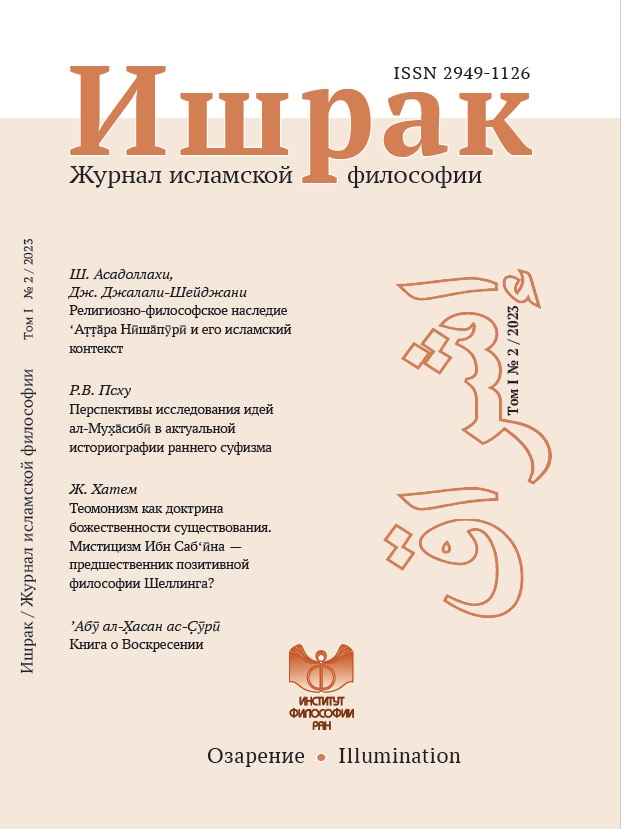Religious and Philosophical Legacy of ‘Aṭṭār Nīšāpūrī and its Islamic Context
Keywords:
Qur’an, Riwāyāt, Hadiths, ‘Aṭṭār, Sufism, Mysticism, Arab and Muslim PhilosophyAbstract
Sheikh Farīd al-Dīn ‘Aṭṭār Nīšāpūrī is a famous Iranian poet and mystic who lived and worked in the second half of the 12th and early 13th centuries. He is one of the mystical poets who possessed a truly encyclopedic erudition in theological disciplines: in particular, ‘Aṭṭār was well acquainted with Qur’anic exegesis and hadith. In his works the reader encounters many Qur’anic themes and motifs, as well as references to riwāyāt — various versions of the legends about the Prophet. Thus, his writings, saturated with Sufi terminology, serve as a kind of commentary on the corpus of the Qur’an and Sunnah. The style of ‘Aṭṭār noticeably differs from the style of his predecessors: it is characterized by an appeal to a simple colloquial language, the use of literary in form and allegorical in content stories and parables, addressed primarily to common people. In his poetry ‘Aṭṭār quotes verses of the Qur’an or passages from them literally or with minor changes, and also refers to Qur’anic images or introduces other allusions to the Qur’an into the text. In this article the authors will demonstrate the influence of the concept sphere of the Qur’an and hadiths on the philosophical and religious work of ‘Aṭṭār. The texts of poems Asrār-nāma, Elāhi-nāma, Manṭeq al-ṭeyr, Moṣibat-nāma and Moḵtār-nāma will be considered.


